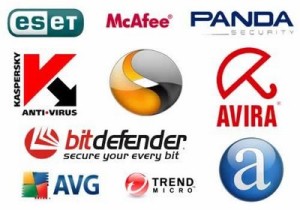Have you changed this essential setting for your Anti-Virus Software?
Have you changed this essential setting for your Anti-Virus Software?
By Jeandre de Beer / Kim Komando
Your anti-virus software is great for blocking serious attacks against your system. However, it doesn’t always catch programs that cause “minor” annoyances.
I’m talking about the “potentially unwanted programs” or PUP that are everywhere online.
They’re built by enterprising programmers who have figured out that there’s more money in staying under the radar of every major security company.
If you’ve ever had to deal with pop-ups, unwanted toolbars, or had your homepage redirected to an unfamiliar website, that’s the work of a PUP (potentially unwanted program).
While most anti-virus programs will protect you from PUPs for free, the option isn’t always turned on.
Make sure that your anti-virus understands that you don’t want any potentially unwanted programs on your PC. I’ll cover the settings for Avast, AVG and Kaspersky. McAfee has full protection turned on by default.
Note: Norton doesn’t currently find and remove PUPs, but Symantec plans to add that it in the future. When it does, it will be turned on by default.
AVAST
The free version of Avast does, luckily, protect you from PUPs for free. Here’s the annoying part: You have to turn PUP protection on yourself. It’s not too hard, so let’s dive right in.
Open up Avast, then click the Settings button and select the Active Protection tab.
Click the gear icon next to File System shield and then the Sensitivity tab. Here’s how some PUPs manage to sneak past.
Make sure that the “Scan for potentially unwanted programs or filed” checkbox is ticked. Do this for every other setting on the page, and your PC should be safe from most PUPs.
AVG
Are you an AVG user? Well you’re in luck. Basic protection against PUPs is enabled by default for both free and paid users. What you can still do, however, is enable extra protection.
The catch is that ramping up your protection too much might set off some false alarms. The way that most anti-virus programs “detect” PUPs is by looking for specific commands that bad-news programs often tell your computer to do. This includes stuff like changing your homepage and installing most browser extensions.
If you want to maximize your protection as soon as possible, here’s how to do it:
Open up AVG, then click the Options menu. Click the “advanced settings” option. Now double click “computer protection” and finally click on the “AntiVirus” tab. Then make sure everything under AntiVirus Settings is checked.
KASPERSKY
If you’re a Kaspersky user, then you’re already protected from most PUPs. Like most other anti-virus programs, though, you can still punch up your detection features.
As always, this might trigger some false alarms. On the other hand, by default Kaspersky does notdetect keyloggers – these are the programs that record everything you do on your computer. Changing this setting will make sure that it does.
Here’s how to change your settings:
Open up Kaspersky and click the “Settings” button. Now click the “Additional” tab, then “Threats and Exclusions.”
Now click the “Detect other software that can be used by criminals to damage your computer or personal data” tickbox. Kaspersky will now detect and warn you about files that siphon your data.
Are you currently infected?
If you currently have viruses or spyware or PUP – contact us – we can assist you remotely within minutes.






Leave a Reply
Want to join the discussion?Feel free to contribute!